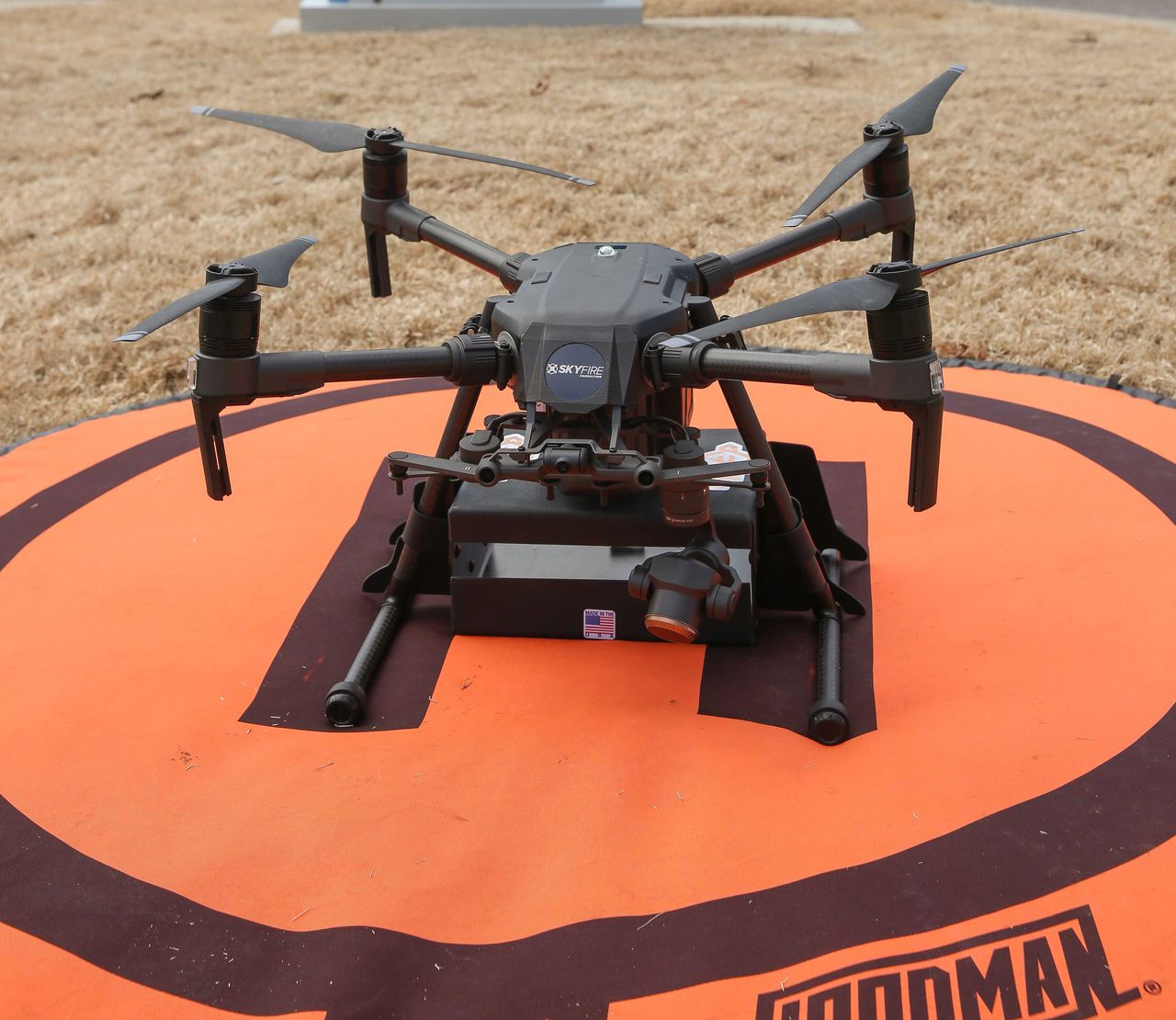Bill would ban Alabama government buying Chinese drones
A legislator from Huntsville wants to ban state agencies and other Alabama governmental bodies from buying Chinese-made drones that could be embedded with software to help China spy on important military bases in Alabama.
The bill would prevent state agencies from buying Chinese-made drones or unmanned aircraft if the manufacturer is on the Specially Designated Nationals and Blocked Persons List maintained by the federal Office of Foreign Assets Control (OFAC).
China has been the top drone manufacturer in the world in recent years largely through the company DJI (Dajing Innovations). But DJI has been banned as a vendor for the Army and Navy since 2017 due to security concerns.
Experts say there are still tens of thousands of DJI drones in use in the private sector, however, because it is an easy-to-learn and easy-to-operate drone.
State Rep. James Lomax (R-Huntsville) is sponsoring the drone ban bill and told the Alabama Daily News it will help protect his city’s Redstone Arsenal. The arsenal is a “federal center of excellence” with a variety of military and defense agencies and commands.
“This puts in an extra protective layer if somebody inadvertently is shooting pictures or images, and via an embedded software or hardware, is sending it to a foreign national,” Lomax told the publication.
“All airspace in the United States is public use,” Redstone Arsenal Airfield Manager Robert Cannon said Tuesday. “The Department of Defense has to petition the FAA (Federal Aviation Administration) to restrict any user of airspace. “
The FAA and Defense Department realized that drones could be used for nefarious purposes near military bases, Cannon said. Some bases including Redstone are thus off-limits to drones. “Flying over is restricted without certain permissions, Cannon said.”
But flying a drone near Redstone is legal but taking pictures of the base with, for example, a drone launched above a boat in the Tennessee River or the adjacent Huntsville Botanical Garden is not allowed.
Lomax’s bill is among three in the Alabama Legislature aimed at limiting Chinese influence in the state.
The other two are:
· The Alabama Property Protection Act would bar real estate purchases by the Chinese government, any Chinese citizen or business and anyone with Chinese citizenship. There is no exception for people with dual Chinese-American citizenship, but Chinese citizens can keep property already bought.
· A ban on stock ownership by certain government entities in certain Chinese companies, a bill filed by Republican state Rep. Mike Shaw of Hoover. The boards of the Retirement Systems of Alabama, the Judicial Retirement Fund and the state treasurer would be affected, reports said.
The bills by Lomax and Shaw were sent to the House State Government Committee for review. They won’t face a full legislative vote until and if they come out of committee.
Drone use
There are multiple issues relating to drones, but established drone businesses say states have been working to solve them for years for the simple reason that drones can be so effective. From transporting medicine to remote towns to checking power lines and searching for missing people in woods and lakes, their value seems constantly increasing.
“It’s important to realize that Alabama is not the first on this” to put controls on drones and where they can go, David Cooper, a former Army aviation officer, said Tuesday of drone control policies. Cooper is CEO of the Alabama aerial photography and cinematography business EQB View.
Cooper uses drones in his productions and points to a key tool, Blue UAS, which is a guide to commercial, off-the-shelf technology that meets Army requirements for security. It has a quick reference of all vetted and approved drone technology.
American manufacturers have also stepped up to provide technically safer drones and drone implementation models for police departments. Cooper cited the Huntsville police department as an example. The department sought commercial technology advice from a trusted provider when starting its program and gradually increased operations.
The first year, HPD flew “a little over 300 flights with nine pilots,” a program according to the journal Forensic. Drone flights now number more than 1,000 a year and include support to traffic investigations, drug enforcement and special teams.
